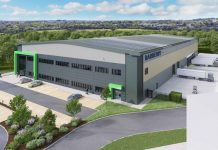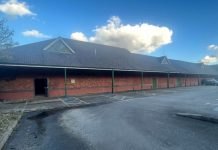Stuart Lisle, lead tax partner in the Southampton office of accountancy and business advisory firm BDO LLP, is calling on the Chancellor to use the Budget to unleash the potential of our manufacturing sector in the Central South region.
“We’re not expecting the Chancellor’s Budget to raise many individuals’ eyebrows next month. Political parties are likely to keep their powder dry and hold in reserve any potentially vote winning or opinion-shifting personal tax measures for their manifestos and campaigns for next year’s General Election.
“With the economy now showing the first signs of a sustainable recovery, we want to see the government putting in place the right fiscal environment to enable businesses to make the most of opportunities ahead, whilst ensuring that nothing derails the fragile improvements we are seeing. Osborne has already established this country as one of the most competitive in the developed world and therefore needs to ensure we maintain this position as other world economies also start to emerge from recession.
“For me, the Chancellor’s non-negotiable has to be to unleash the potential of our manufacturing industries. Previous governments have tinkered in the past without making effective, long-lasting changes that significantly enhance our balance of payments through a strong and effective multi-sector economy. They have created tax policies that have largely ignored our manufacturing ‘Mittelstand’ and instead focused on the cash cow that is the City of London.
“We should not forget that the mid-sized businesses of today, which here in the Central South may only account for 9% of all businesses but generate 48% of the region’s revenue, can become the big businesses of tomorrow. As such, the Chancellor needs to include a package of measures to provide real incentives to give business leaders the confidence and support to invest in growth by encouraging investment in people, capital assets and their export markets.
“The previous government removed all tax allowances for expenditure on factories. There is currently no tax relief on capital investment in buildings used within a business, whether factories, offices or retail outlets. Reintroducing a form of relief for this expenditure would encourage manufacturers to invest in new factories or improve existing ones, resulting in increased production capacity at a reduced cost to help encourage the growing trend of on-shoring our manufacturing capabilities.
“More should also be done to encourage manufacturers to turn their recruitment intentions into a reality. Employers’ national insurance (NI) currently acts as a barrier to growth and, although the current government has attempted to create some initiatives through limited NI reliefs in the last two Budgets, the impact of these measures is proving to be negligible. This, combined with the additional tax on employment in the guise of auto-enrolment, in an attempt to shift the cost of our burgeoning OAP population from the public purse to our already over-burdened private sector, is hampering growth and entrepreneurial activity. It is another tax on commercial enterprise introduced by the previous regime, which has not been tackled during this parliament.
“What is needed is a bold move that will affect real change. A temporary reduction in employers’ NI contributions for the manufacturing sector would help bolster employment and reduce costs to support the government’s rhetoric of doubling exports by 2020, by targeting those companies that are most likely to sell to foreign markets.
“The name change for national insurance to earnings tax will hopefully pave the way to the merger of income tax with national insurance. This should lead to a simplification of current complex tax rules that apply to both taxes and enhance transparency and understanding of how much tax is actually paid on earned income.
“Care will be required to make sure that any transition to a new combined tax on earnings is achieved as smoothly as possible and without any increased administrative burden or cost on businesses – a novel concept for the UK Exchequer.
“During the last few years, most businesses have streamlined and cut costs wherever possible to help de-risk in a difficult trading environment. Unsurprisingly, business investment has been disconcertingly weak.
“But as confidence makes a comeback, investment must make its way back onto the business agenda if we are to capitalise on a recovering market. Even those companies with cash on the balance sheet still worry about saving it for a rainy day. Any business that fails to invest in its future will eventually find itself lagging behind the field and uncompetitive, but the danger is particularly acute for manufacturers.
“Osborne has a huge opportunity here. The Chancellor temporarily increased the annual investment allowance (AIA) for expenditure on plant and machinery ten-fold in the 2012 Autumn Statement. At the time this was generous and seen as a bold move, providing businesses with a 100% first year deduction on new investments up to £250,000. But it did not and does not stimulate the significant capital investment that the UK economy needs right now. Increasing the AIA permanently to £1m would be hugely valuable to manufacturers, enabling them to invest and grow.
“Finally, the UK currently allows manufacturers to zero rate their exports for VAT purposes but we’re less generous with reliefs for supplies made to UK exporters by other UK businesses. If the government is serious about doubling the number of exports by 2020, it needs to widen the net. We would like to see the Chancellor announce a relief similar to that of Ireland – in that suppliers to a qualifying exporter can also benefit from VAT zero-rating. Such a measure would be a boost for the huge supply chain network that surrounds our manufacturing heartland.”





















